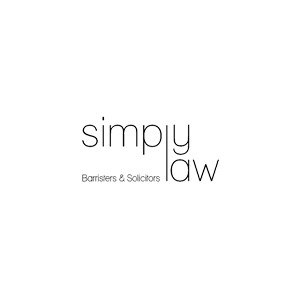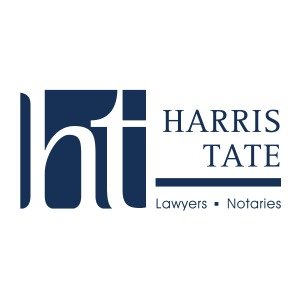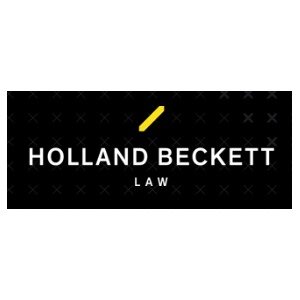Best Renewable & Alternative Energy Lawyers in Tauranga
Share your needs with us, get contacted by law firms.
Free. Takes 2 min.
List of the best lawyers in Tauranga, New Zealand
About Renewable & Alternative Energy Law in Tauranga, New Zealand
Tauranga, a thriving city in the Bay of Plenty, is rapidly advancing in the field of renewable and alternative energy. Located in a region with abundant sunshine and wind, Tauranga is well-placed for solar, wind, and geothermal energy initiatives. In New Zealand, renewable energy development is strongly encouraged to help achieve national sustainability goals, reduce carbon emissions, and transition away from fossil fuels. Legal frameworks at both local and national levels shape how renewable energy projects are planned, approved, and managed. These frameworks cover matters such as resource consent, environmental impact, property rights, and energy distribution. Understanding the legal landscape is essential for anyone considering involvement in renewable or alternative energy projects in Tauranga.
Why You May Need a Lawyer
Legal support is indispensable when navigating Tauranga's renewable and alternative energy sector. You may need a lawyer for several reasons:
- Securing the necessary resource consents and permits for establishing geothermal, solar, or wind installations.
- Negotiating land use agreements, easements, and leases for siting renewable energy infrastructure.
- Understanding compliance with environmental regulations and addressing potential environmental impacts.
- Drafting and reviewing contracts related to construction, energy supply, and joint ventures.
- Managing disputes involving neighbours, local authorities, or third parties objecting to energy projects.
- Accessing government grants, subsidies, and incentives for renewable energy projects.
- Protecting intellectual property associated with innovative energy technologies.
- Guiding through changes in legislation and policy affecting the sector.
A lawyer experienced in renewable and alternative energy can help individuals, businesses, and communities avoid costly errors and ensure their projects comply with all legal requirements.
Local Laws Overview
Renewable and alternative energy projects in Tauranga are governed by a combination of national and local laws. The most relevant frameworks include:
- Resource Management Act 1991 (RMA): This is the primary statute regulating land use, environmental protection, and resource consents for energy projects. Proposals for wind farms, solar arrays, or geothermal extraction generally require assessment for potential environmental impacts and community effects.
- Tauranga City Council District Plan: The local District Plan sets out zoning rules and land use controls for renewable energy installations. These governs issues such as noise, visual impact, height, and proximity to neighbouring properties.
- Building Act 2004: This Act covers the consenting and safety requirements for structural components of energy projects, such as solar panel mounting systems and wind turbine towers.
- Electricity Act 1992 and Electricity Industry Participation Code: These regulate the supply, distribution, and sale of electricity, including requirements for connecting new generation sources to the existing grid.
- Clean Energy Incentives and Funding: Various government initiatives may influence the viability of renewable projects, such as grants, tax incentives, and support from the Energy Efficiency and Conservation Authority (EECA).
Local iwi and hapu interests may also play an important role, especially regarding the use of land or resources with cultural significance.
Frequently Asked Questions
What types of renewable energy are most commonly used in Tauranga?
Solar energy is widely adopted for residential and commercial properties. Wind and geothermal energy are also increasingly explored, with Tauranga’s climate and geology supporting various renewable sources.
Do I need council consent to install solar panels on my property?
In many residential situations, small-scale solar panel installations do not require resource consent. However, larger installations or those in sensitive zones may need council approval. Building consent may be required depending on how the system is mounted.
Can I sell excess electricity generated by my solar system back to the grid?
Yes, New Zealand allows for grid-connected solar systems to export surplus electricity. This process involves agreements with your electricity retailer and network provider, following safety and technical standards.
What funding or incentives are available for renewable energy projects?
Funding and incentives are provided through national agencies like EECA and may include grants for feasibility studies, business energy audits, or implementation of renewable technologies.
Are there restrictions on wind turbine installations in Tauranga?
Turbine installations are subject to district planning rules regarding height, noise, and setback distances. Larger developments must complete environmental assessments and obtain resource consent.
What environmental regulations affect renewable energy projects?
Projects must comply with the Resource Management Act, which requires assessment and mitigation of impacts on the environment, such as noise, landscape effects, and biodiversity.
How are cultural and iwi interests considered in renewable energy projects?
Engagement with iwi and hapu is often required, particularly when projects affect land or resources of cultural or historical significance. Early consultation can help address concerns and seek mutually beneficial outcomes.
What happens if my neighbour objects to my renewable energy installation?
Neighbours can submit objections during the resource consent process. The Council reviews these concerns and may impose conditions or require modifications to the project to address valid objections.
Do I need a lawyer to draft commercial contracts for renewable energy investments?
Yes, legal advice is recommended to ensure contracts are robust, minimize risk, and comply with relevant regulations regarding supply, construction, or joint ventures in the energy sector.
How can I ensure compliance with health and safety regulations?
New Zealand’s Health and Safety at Work Act 2015 applies to all workplaces, including energy project sites. A lawyer can help identify obligations, assist with documentation, and advise on best practices.
Additional Resources
Several organizations and agencies provide valuable information and support for renewable and alternative energy in Tauranga:
- Energy Efficiency and Conservation Authority (EECA): Offers guidance, funding opportunities, and resources on renewable energy technologies.
- Tauranga City Council: The planning and consents team provides advice on local requirements for energy projects.
- Ministry of Business, Innovation & Employment (MBIE): Oversees energy policy and legislation in New Zealand.
- New Zealand Wind Energy Association (NZWEA): Provides sector-specific insights and advocacy.
- Solar Association of New Zealand (SANZ): Offers guidance on solar energy systems and installer directories.
Next Steps
If you are considering a renewable or alternative energy project in Tauranga, start by clarifying your goals and gathering preliminary information about your site and technology preferences. Consult Tauranga City Council to understand local planning requirements and whether resource or building consents are needed for your proposal.
Engage an experienced renewable energy lawyer early in the process, particularly when preparing consent applications, negotiating property agreements, or drafting contracts. Legal advice can help you identify risks, secure approvals more efficiently, and protect your interests throughout the life of your project.
Document all communications and keep records of your research, applications, and consultations. Consider seeking professional input from engineers and environmental consultants as well to ensure technical and legal compliance across all aspects of your development.
By taking informed, proactive steps and relying on professional guidance, you can navigate the legal requirements of renewable and alternative energy in Tauranga successfully and with confidence.
Lawzana helps you find the best lawyers and law firms in Tauranga through a curated and pre-screened list of qualified legal professionals. Our platform offers rankings and detailed profiles of attorneys and law firms, allowing you to compare based on practice areas, including Renewable & Alternative Energy, experience, and client feedback.
Each profile includes a description of the firm's areas of practice, client reviews, team members and partners, year of establishment, spoken languages, office locations, contact information, social media presence, and any published articles or resources. Most firms on our platform speak English and are experienced in both local and international legal matters.
Get a quote from top-rated law firms in Tauranga, New Zealand — quickly, securely, and without unnecessary hassle.
Disclaimer:
The information provided on this page is for general informational purposes only and does not constitute legal advice. While we strive to ensure the accuracy and relevance of the content, legal information may change over time, and interpretations of the law can vary. You should always consult with a qualified legal professional for advice specific to your situation.
We disclaim all liability for actions taken or not taken based on the content of this page. If you believe any information is incorrect or outdated, please contact us, and we will review and update it where appropriate.

















